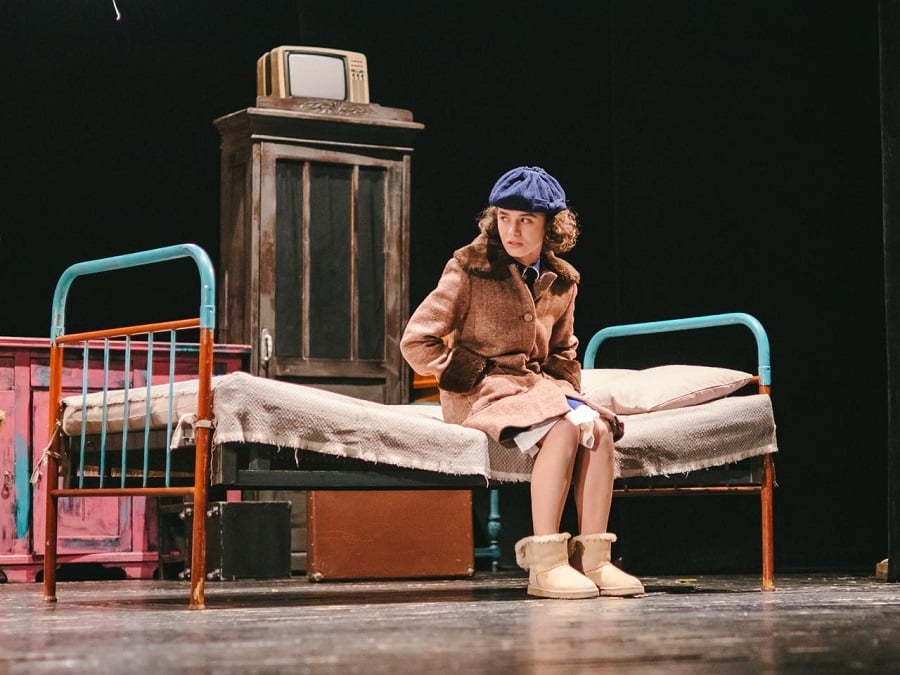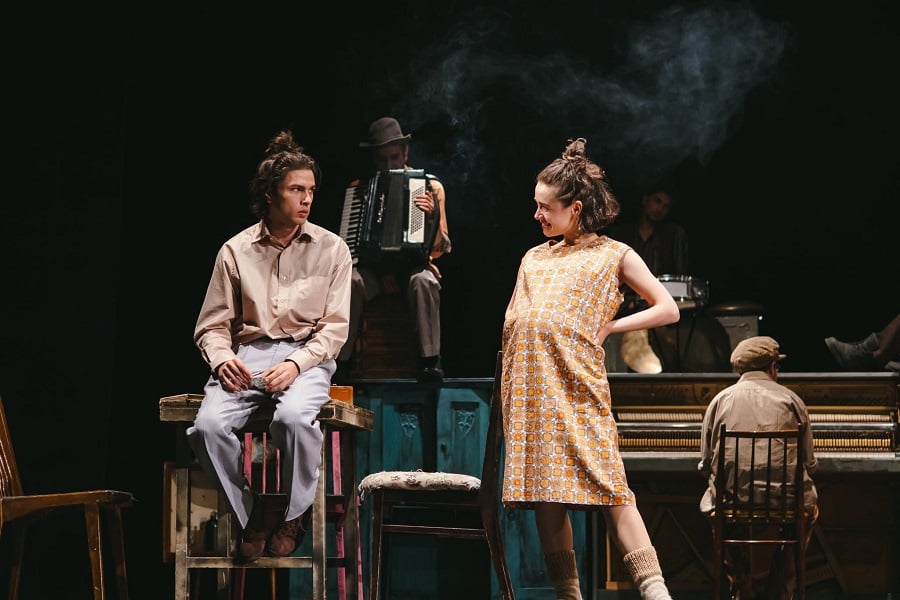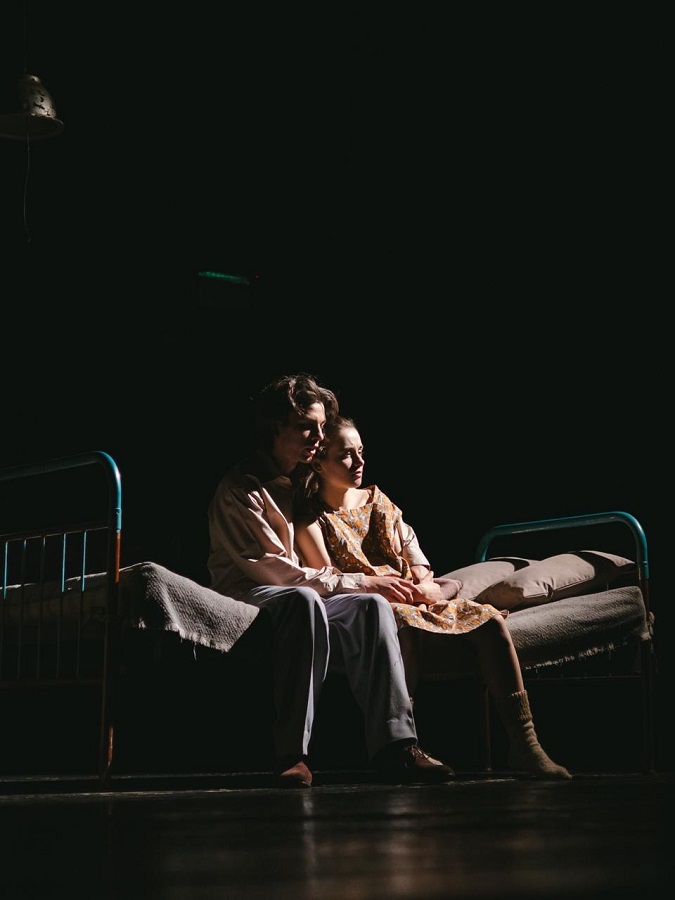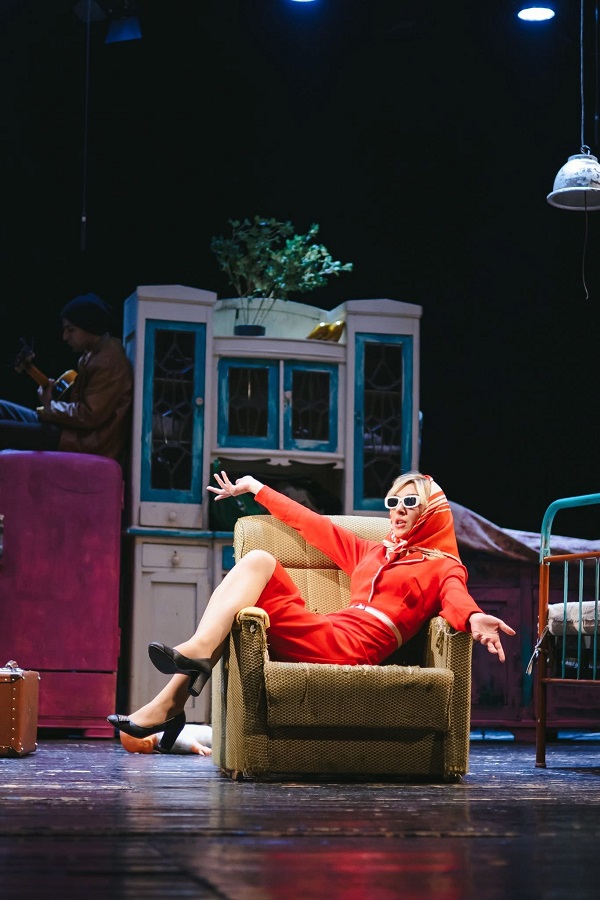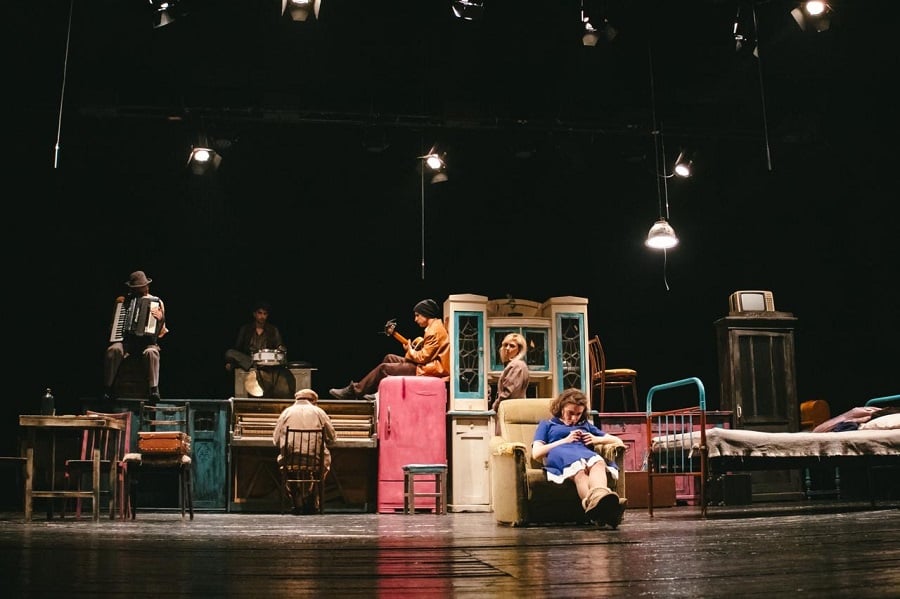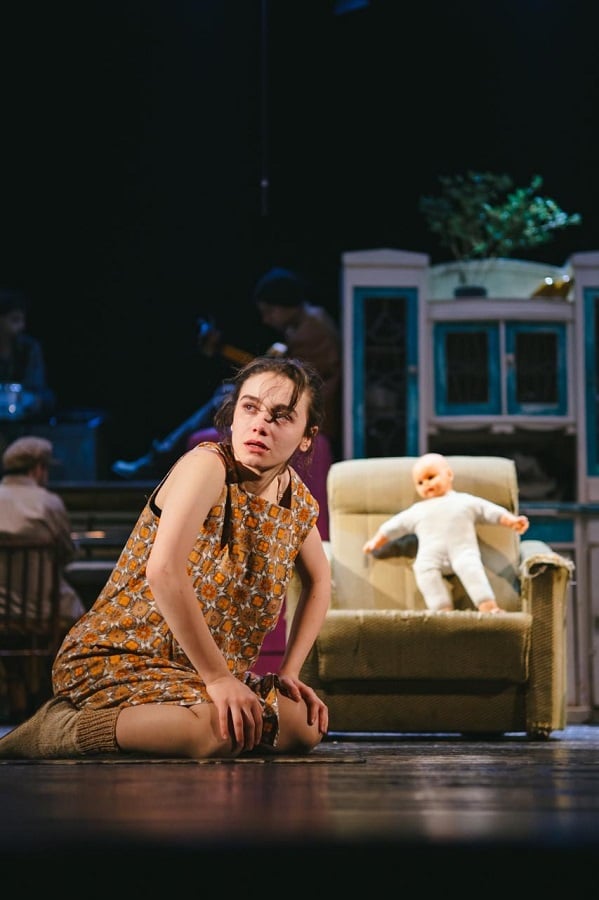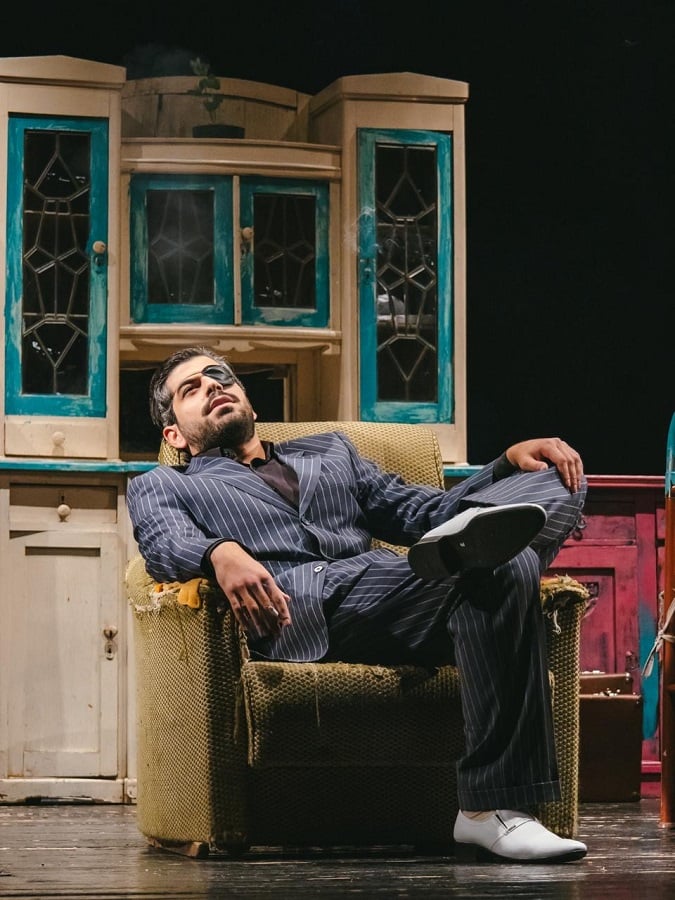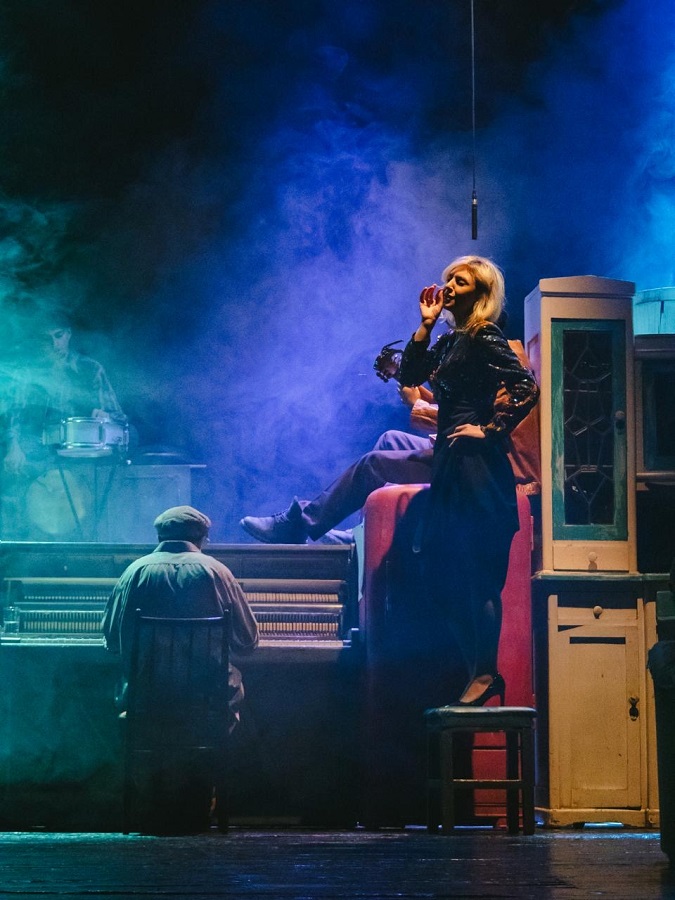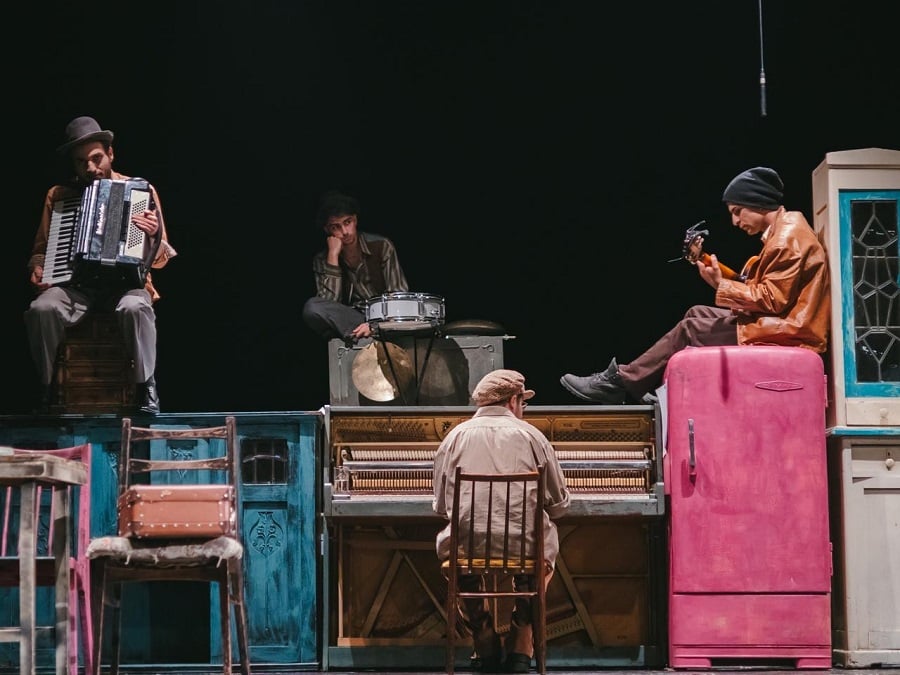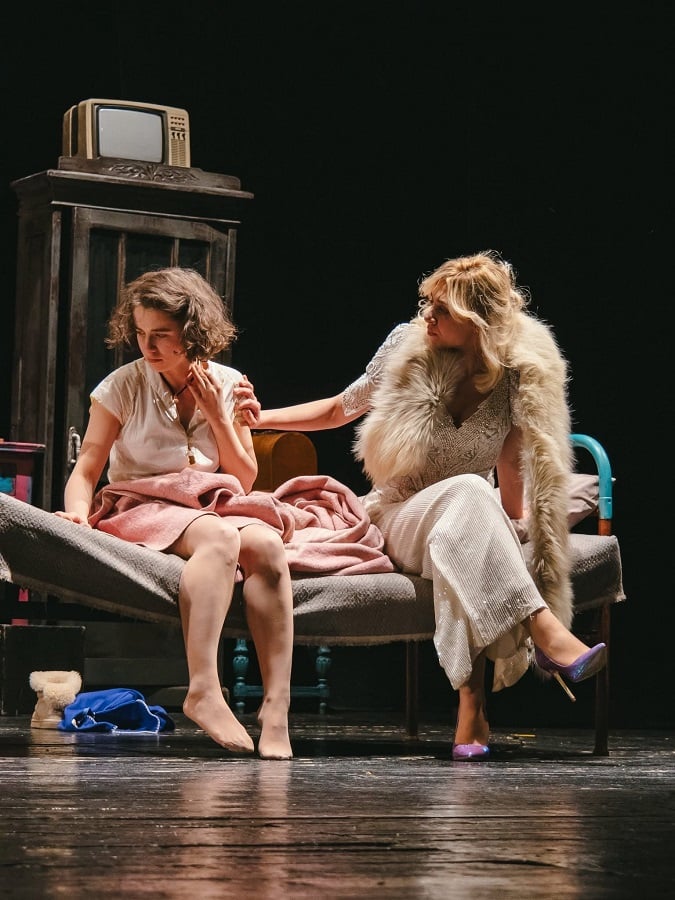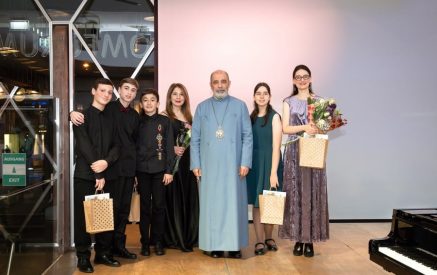At the Theatre of Young Spectator’s, we had the chance to watch Shelagh Delaney’s “A Taste of Honey”, a jazz drama in two-act shaped by director Gor Margaryan’s signature delicacy and his gift for reinterpreting reality. It is a performance about people who often fail to hear one another, can not stay side by side, yet can not bear each other’s absence. Beneath fog-covered days, beneath intersecting lines of tension and expectation, life’s deeper layer begins to reveal itself, where unfulfilled hopes, tangled bonds, love and solitude settle into a single whole.
Margaryan’s direction casts a new light on this drama: the mist becomes a structural layer of the story. Tense moments move cautiously across the stage. The director refuses to rush. He lets silence speak, lets tension flow, lets words be born late, heavy, yet precise. Every pause becomes a crack through which the characters’ unguarded inner world can be seen.
The broken connections in the story turn into a jazz-like cataclysm. Here jazz is not merely music; it is the raw, unpolished, unpredictable noise inside a human being, sometimes beautiful, sometimes aching. Its freedom clashes with the trapped lives of the characters, and this very clash charges the drama. The oscillations of love and loneliness become musical accents. Love is at times invisible, at times harsh, and solitude unavoidable, yet within the performance they sound like two different tones of the same melody. People living apart and living through one another: this is the axis of the entire theatrical composition.
Actress Mariam Ghazanchyan, who played Jo years ago and now returns as Helen, mesmerizes with her performance. This is more than a simple change of role. Her Helen neither shouts nor laments; she lives on stage. Her gaze is fine-edged and penetrating; her breath carries a hidden melodic pulse. Ghazanchyan achieves such balance and inner accuracy that the character is shaped not by external gestures but by subtle psychological transitions.
Maria Hunanyan’s Jo is vivid and expressive, sculpted with a bold aesthetic of extremes. It is astonishing to witness such fearless performance at her age: such clarity of voice, such confident presence, such complete ownership of the character. She expresses the heroine’s coarse fall and inner fracture not through domestic realism but through an expansive emotional field. Her performance glides on lines both delicate and sharp, shifting in an instant from childlike immediacy to the restless inner world of a grown woman.
Years ago, director Gor Margaryan played Jof himself. Today, entrusted to actor Artur Vardanyan, the role acquires new layers. Artur’s calm, balanced yet internally trembling interpretation has led the director to rediscover the character’s motives and revalue his psychological arc. Jof is someone who tries to be light, yet inevitably compares himself with his own shadow. And although the role demands responsibility and emotional precision, Artur Vardanyan manages to build a performance in which Jof’s hidden traits become strikingly visible.
Peter, embodied by actor Sasha Sukiasyan, is one of the production’s most intricate psychological knots. His very appearance alters the energy of each scene, sharpens relationships, shifts the atmosphere. His presence is itself a tension point. Whenever Peter is onstage, something can change, crack, or come to light. Sukiassyan crafts a form of presence that never allows the audience to forget how essential this character is to the personal, familial, and emotional planes of the story.
The production’s dramatic-psychological architecture is completed by composer Narek Cosmos’s music, which does not accompany the action so much as unlock it from within. Live music onstage is always a leap of courage, but this time it becomes fully integrated since the musicians themselves form part of the performance. Cosmos’s score defies the traditional idea of “background,” becoming a body that breathes independently onstage. At times his music resembles the characters’ inner tremor: soft, sensitive, fragile, almost invisible; then suddenly it erupts into a sharp, irregular, uncontrollable rhythm, echoing the ruptured and re-stitched seams of human relationships.
Cosmos masterfully holds the balance between emotional depth and psychological precision, allowing musical lines to become the characters’ “unsaid words,” their gentle confessions or the quiet glimmer of their resistance. He does not describe the characters; he enters them, creating that rare bond in which music becomes the expansion of a character’s soul. The freedom of jazz structure, the abrupt turns, the mingling of lightness and pain complete the world of the production. This musical realm not only intertwines with the directorial tempo but becomes the emotional spine of the performance, reminding us that beneath every story there is always a melody not played loudly, yet alive within each character.
We believe “A Taste of Honey” is an important production for the contemporary viewer. It reminds us that thinking, listening, resisting difficulty and loving can be equally hard and equally necessary. And the questions raised by the performance still await their answers. Perhaps those answers live within us.
Vova Arzumanyan




















































